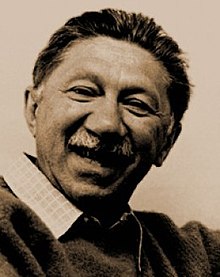Part Three

The more I read of Maslow, the more I see some glaring deficiencies in his theories. The concept of self-actualizing is a crucial developmental feat for Humanistic Psychology as a whole field. Initially my problem with Maslow was similar to complaints of Piaget. That is, that the stages described are too rigid and do not allow of individual variance and developmental differences. However, as I read on in “Toward a Psychology of Being”, I become more and more disappointed with Maslow. I do not necessarily disagree with him, but I find that there are a lot of blanks left vague and other parts divulged in too great of detail, making it quite constrictive.
My overall impression of “Toward a Psychology of Being” is rather negative. I feel like Maslow is trying to “westernize” Zen Budhism and re-publish ideologies of “zen”, “enlightenment”, and “nirvana” under different titles that have been filtered firstly through American culture and then through Maslow himself. I do not care for this approach. Call a spade a spade. It would be just as relevant to the field of Humanistic Psychology if Maslow would have written a book on applying Buddhist principles to psychotherapy. However, he is seemingly covering up this rather obvious source of reference.
In terms of specific points, I asked a question in class that did not get answered by the discussion among my colleagues. Maslow clearly points out that Self-Actualization is not permanent. It is not achieved and then passively sustained. Up to this point I agree with him. However, the question I presented was; “what if one of the foundational ‘lower’ tiers in the hierarchy disappears completely?” More specifically, when something breaks at the foundation that has built up to self-actualizing, does the person crash down to the bottom and begin rebuilding from ground-zero (albeit with more experience and awareness of the self)?
Perhaps my biggest concern for Maslow is his avoidance of the temporal or physical realms. The book discusses in great detail the cognitive and spiritual aspects of phenomenology, but ignores what is happening in the physical realm of our being. Our experiences (the phenomena to which we are exposed) extricate themselves not only from mental apparitions and perceptions but also rely (at least in part) on physical responses and representations to give density, sustenance, and temporal validation to the claims of authenticity hosted by the mind.
Part One - Rollo May - "The Discovery of Being"
Part Two - Carl Rogers - "On Becoming a Person"
Follow me on Twitter @Savaged_Zen (link)
No comments:
Post a Comment